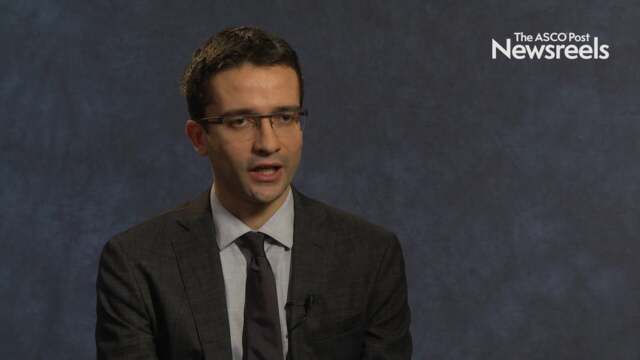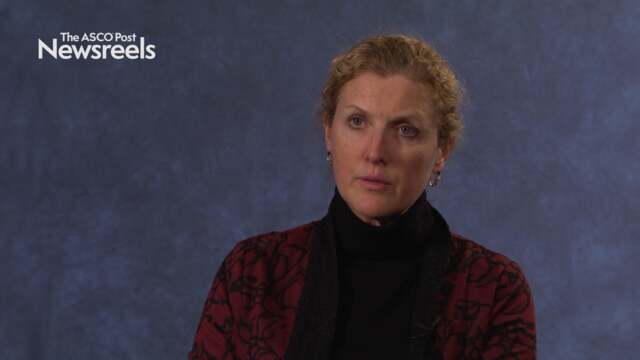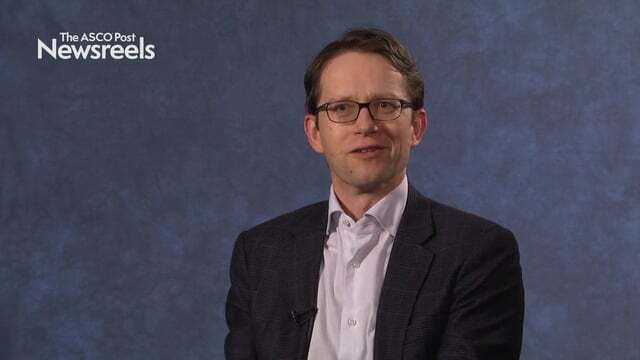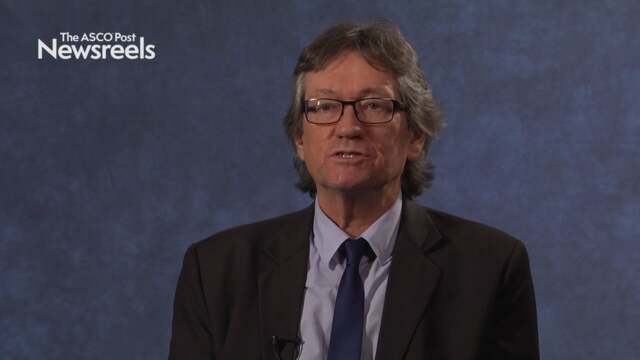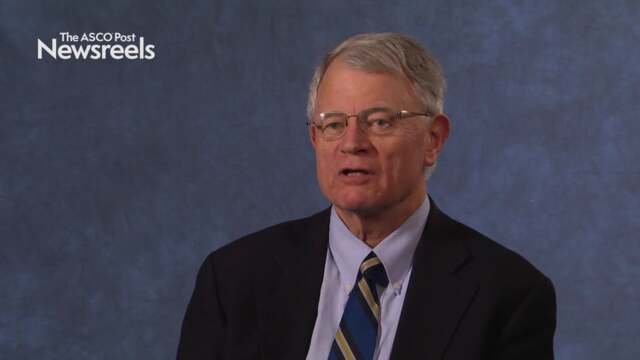Joseph A. Sparano, MD, on Stage II–III Breast Cancer and CTCs
2017 San Antonio Breast Cancer Symposium
Joseph A. Sparano, MD, of Montefiore Medical Center/Albert Einstein College of Medicine, discusses findings that suggest circulating tumor cells 5 years after diagnosis are prognostic for late recurrence in operable stage II–III breast cancer (Abstract GS6-03).
Matteo Lambertini, MD, of the Institut Jules Bordet, discusses the results of five clinical trials investigating temporary ovarian suppression with gonadotropin-releasing hormone analogs during chemotherapy as a strategy to preserve ovarian function and fertility in premenopausal early breast cancer patients (Abstract GS4-01).
Lisa A. Carey, MD, of the University of North Carolina, discusses the long-term follow-up of CALGB 40502/NCCTG N063H, a phase III study of weekly paclitaxel compared with weekly nanoparticle albumin bound nab-paclitaxel or ixabepilone with or without bevacizumab as first-line therapy for locally recurrent or metastatic breast cancer (Abstract GS3-06).
Nicholas C. Turner, MD, PhD, of The Royal Marsden Hospital NHS Trust, discusses the challenges of treating metastatic breast cancer and how liquid biopsies can serve as a guide to genetic phenotypes.
Richard G. Gray, MSc, of the University of Oxford, discusses an Early Breast Cancer Trialists’ Collaborative Group meta-analysis of 21,000 women in 16 randomized trials, which showed that increasing the dose density of adjuvant chemotherapy by shortening intervals between courses or sequentially administering treatment significantly reduces disease recurrence and breast cancer mortality (Abstract GS1-01).
Louis Fehrenbacher, MD, of Kaiser Permanente, discusses study findings comparing adjuvant chemotherapy with doxorubicin and cyclophosphamide followed by weekly paclitaxel—or docetaxel and cyclophosphamide—with or without a year of trastuzumab in women with node-positive or high-risk node-negative disease (Abstract GS1-02).
